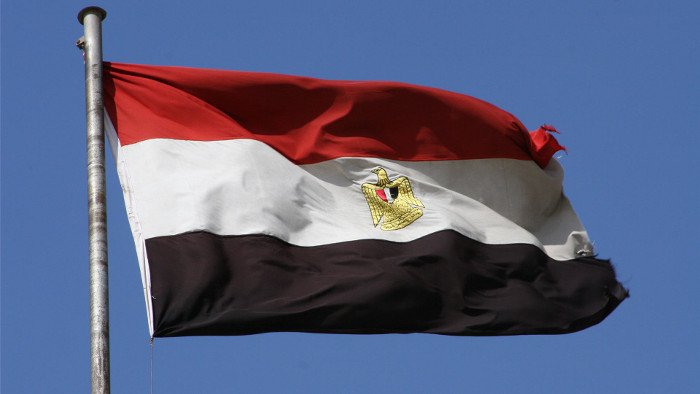Egypt's central bank cut its key interest rates by a 100 basis points, its first cut in 11 months, saying its first inflation target for the end of 2018 had been achieved and fresh data continue "to confirm the moderation of underlying inflationary pressure."
This is the Central Bank of Egypt's (CBE) third rate cut since February 2018 and the overnight deposit rate has now been lowered by 300 basis points since then as inflation has fallen.
The rate cut brings CBE's overnight deposit rate to 15.75 percent, the overnight lending rate to 16.75 percent, the rate on its main operation and discount rate to 16.25 percent.
CBE said its rates remain consistent with tight real monetary conditions and achieving its inflation target for the fourth quarter of 2020 and price stability in the medium term.
While some analysts had expected the CBE to cut its rate due to the recent decline in inflation, other analysts expected the central bank to remain on hold for longer, citing a recent tick up in core inflation and the continued adjustment of prices to the government's ongoing cut to subsidies and tax increases in connection with the International Monetary Fund's US$12 billion aid package.
The CBE noted headline and core inflation rose in January but this was due to an unfavorable comparison.
In January Egypt's headline inflation rose to 12.7 percent from 12.0 percent in December while core inflation, which excludes some volatile food items, rose to 8.6 percent from 8.3 percent.
The rate cut follows CBE's decision in December to lower its inflation target to an average of 9.0 percent, plus/minus 3 percentage points, for the fourth quarter of 2020 from its previous target of 13 percent, plus/minus 3 percentage points, for the fourth quarter of 2018.
While inflation has been declining, Egypt's economy has been improving since the November 2016 agreement with the IMF and gross domestic product growth rose to 5.5 percent in the fourth quarter of last year from 5.3 percent while unemployment fell to 8.9 percent, the lowest since December 2010.
As part of its reforms agreed with the IMF, the government is targeting a primary surplus of 2.0 percent of GDP in fiscal 2018/19, up from a preliminary 0.1 percent last year, a move the IMF on Feb. 5 said appeared to be on track and this would achieve a cumulative fiscal adjustment of 5.5 percent of GDP in 3 years.
Earlier this month the CBE received a US$2 billion fifth tranche of its IMF loan.
In its statement, the IMF said Egypt's economic outlook remains favorable and the recent rise in inflation reflected temporary increases in food and energy but "a restrictive monetary policy stance has helped reverse the increase and keep core inflation well anchored."
For the current fiscal year, which ends July 1, the IMF forecast inflation will average 15.8 percent and then ease to 12.8 percent in 2019/20 from 20.9 percent in 2017/18.
Egypt's GDP is seen growing 5.5 percent in 2018/19, up from 5.3 percent in 2017/18, and 5.9 percent in 2019/20.
After a plunge in November 2016, the Egyptian pound has been trending firmer and rose in late January and has continued to rise this month.
Today the pound was trading at 17.54 to the U.S. dollar, 2.1 percent higher than at the start of this year.
As part of the government's reforms, the CBE in November 2016 floated the pound, which quickly lost more than half its value, boosting import prices and inflation.
The impact of higher fuel, electricity and tobacco prices from the subsidy cuts and higher import prices boosted Egypt's inflation rate to almost 33 percent in July 2017 while the central bank then raised its rates by a further 200 basis points to 18.75 percent the same month.
By February 2018, the CBE became confident inflation had peaked and was falling so it was able to cut its rate twice in succession by a total of 200 basis points. But since April the rate was on hold.




































